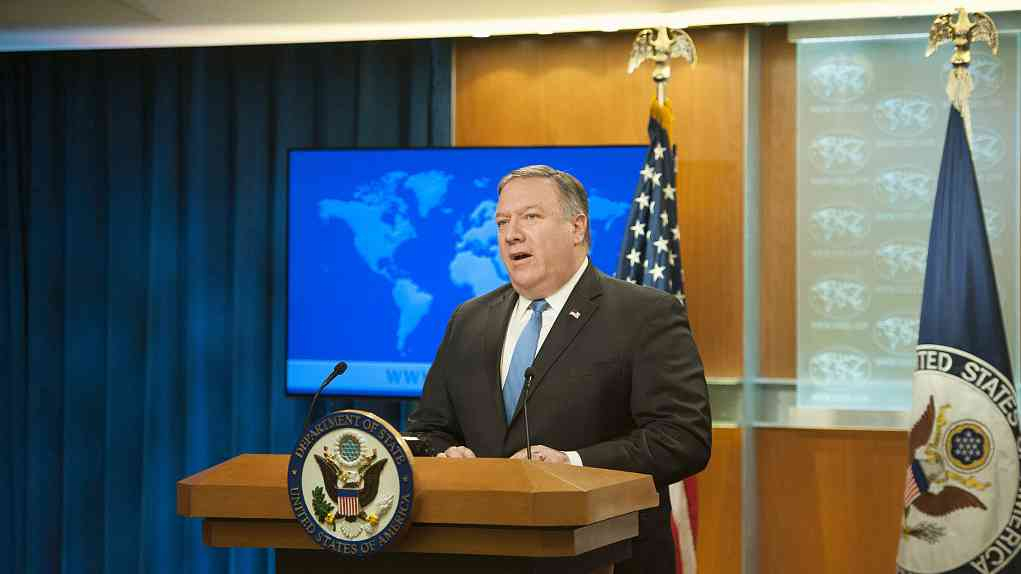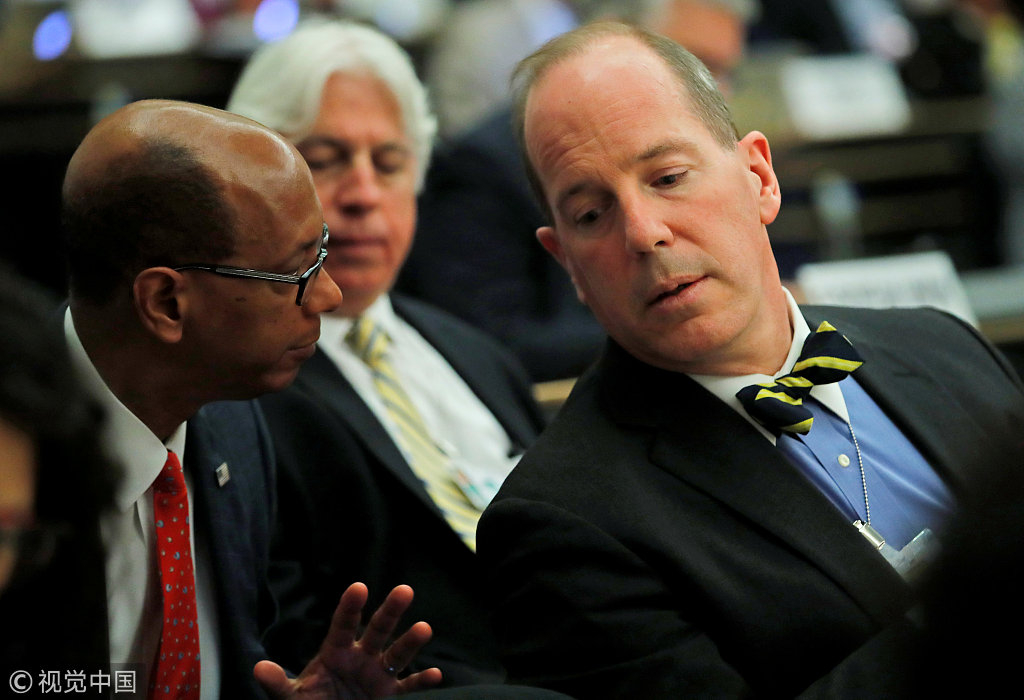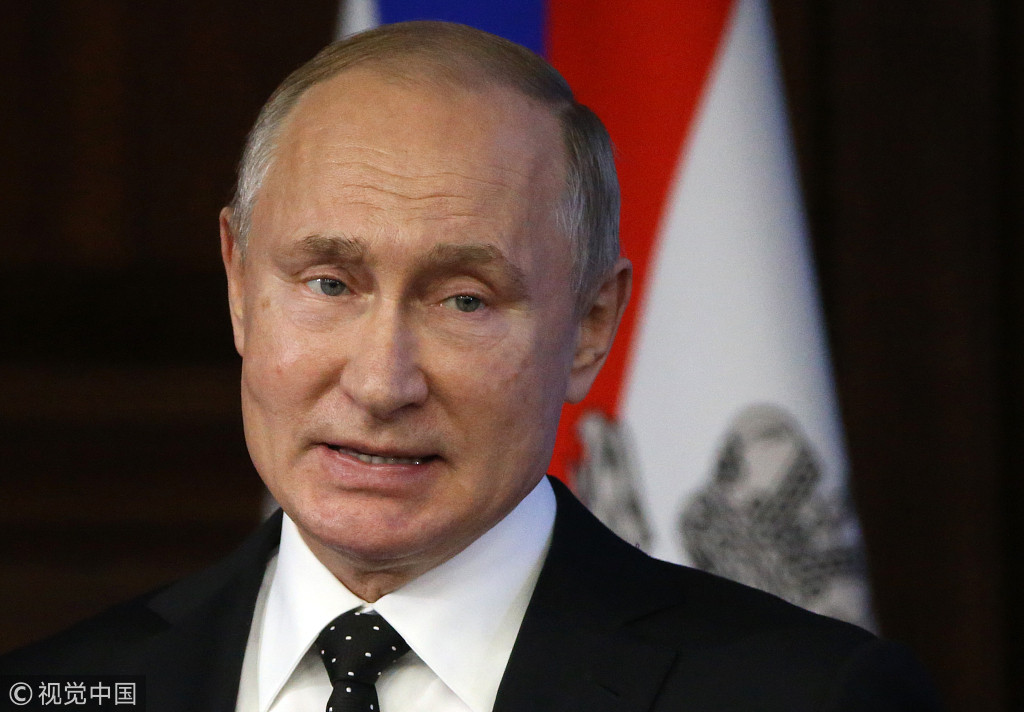
Opinion
16:05, 30-Jan-2019
Opinion: NPT is an important guarantee for political trust
Wang Jin

Editor’s note: Wang Jin is a research fellow at Charhar Institute and a research fellow with Syria Research Center, Northwest University of China. The article reflects the author's opinion, and not necessarily the views of CGTN.
Since the Treaty on the Non-Proliferation of Nuclear Weapons (NPT) came into force in 1970, it has become a milestone in the collective security system and an important guarantee for peaceful international circumstances.
The NPT that running for nearly half century has three pillars, namely the commitments for the disarmament, commitments to support nuclear non-proliferation and commitments on the cooperation for the peaceful use of nuclear energy. Meanwhile, the International Atomic Energy Agency, or IAEA, was set up to safeguard the authority of the NPT and to help spread the peaceful use of nuclear energy.
The importance of the NPT lies in its role of constraining the proliferation of nuclear weapons into the rest of the world. Every state that hopes to possess nuclear weapons represents a willingness to use that weapon as a bargaining chip in international politics, while some states might even use the nuclear weapons to threaten other states and may lead to international conflict. The NPT, therefore, represents the global willingness to limit the spread of nuclear weapon and enhances the belief that through cooperation and trust the world could become safe.

U.S. Assistant Secretary for International Security Christopher A. Ford (R) talks to U.S. Ambassador to the Conference on Disarmament Robert Wood during the 2nd Preparatory session of the 2020 Non-Proliferation Treaty Review Conference at the UN headquarters in Geneva, Switzerland, April 23, 2018. /VCG Photo
U.S. Assistant Secretary for International Security Christopher A. Ford (R) talks to U.S. Ambassador to the Conference on Disarmament Robert Wood during the 2nd Preparatory session of the 2020 Non-Proliferation Treaty Review Conference at the UN headquarters in Geneva, Switzerland, April 23, 2018. /VCG Photo
However, we should not forget that the transformation of the landscape of international politics will lead to new challenges for the NPT; and, the development of nuclear technology and weapons during the past half-century also challenged the management of the NPT.
First, the NPT appeared in the context of the U.S.-Soviet Union rivalry in the Cold War. Both the Soviet Union and the U.S. owned a large number of nuclear bombs and strategic arsenals that were used to threaten not only each other but also the other states. Although the Cold War demised two decades ago, there are still many nuclear arsenals and it is necessary for the U.S. and Russia to reduce their nuclear weapons through negotiations.
Given the geopolitical competition between the U.S. and Russia over Ukraine and the Donald Trump administration's threat to withdraw from Intermediate-Range Nuclear Forces Treaty, another important backbone for strategic balance between Washington and Moscow, the U.S. and Russia might start new competitions over strategic weaponry research and development and may finally lead to the demise of the NPT.
Second, the supervision and punishment mechanisms of the NPT should be further strengthened. In the 1990s, some states that tried to develop and acquire nuclear weapons were either not be detected or not be equally treated.

Russian President Vladimir Putin speaks during the Extended Board of Defence Ministry, an annual meeting with high ranked officers in Moscow, Russia, December 18, 2018. /VCG Photo
Russian President Vladimir Putin speaks during the Extended Board of Defence Ministry, an annual meeting with high ranked officers in Moscow, Russia, December 18, 2018. /VCG Photo
Some states, like the Democratic People's Republic of Korea (DPRK) and Iran, which are both U.S. “arch enemies”, were closely monitored by the U.S. and their nuclear weaponry research and development activities are strictly punished, while some states, like India, were not punished strictly as Iran and the DPRK. The double standards upheld by the U.S. to different states actually weaken the authority of the NPT.
Third, with the development of the latest technology, it is increasingly difficult to monitor all the nuclear weapons. Traditionally, only powerful states were able to do research and make nuclear weapons, while today, some small states or even some small terrorist groups might be able to produce portable nuclear weapons to launch terrorist attacks. Therefore, it is necessary for international society to enhance their cooperation and establish a new mechanism to facilitate intelligence sharing and counter-terrorism cooperation.
The NPT is an important mechanism to enhance the political trust amongst international society, which is a win-to-win play for the whole world. Despite its limitations and challenges ahead, the picture of the world today is much less grim than it was a half century ago, and to strengthen the firewalls against proliferation through the NPT would curtail the anarchism in the whole world.
(Cover photo: U.S. Secretary of State Mike Pompeo announces the creation of the Iran Action Group at the Department of State in Washington, DC, August 16, 2018. /VCG Photo)
(If you want to contribute and have specific expertise, please contact us at opinions@cgtn.com.)

SITEMAP
Copyright © 2018 CGTN. Beijing ICP prepared NO.16065310-3
Copyright © 2018 CGTN. Beijing ICP prepared NO.16065310-3